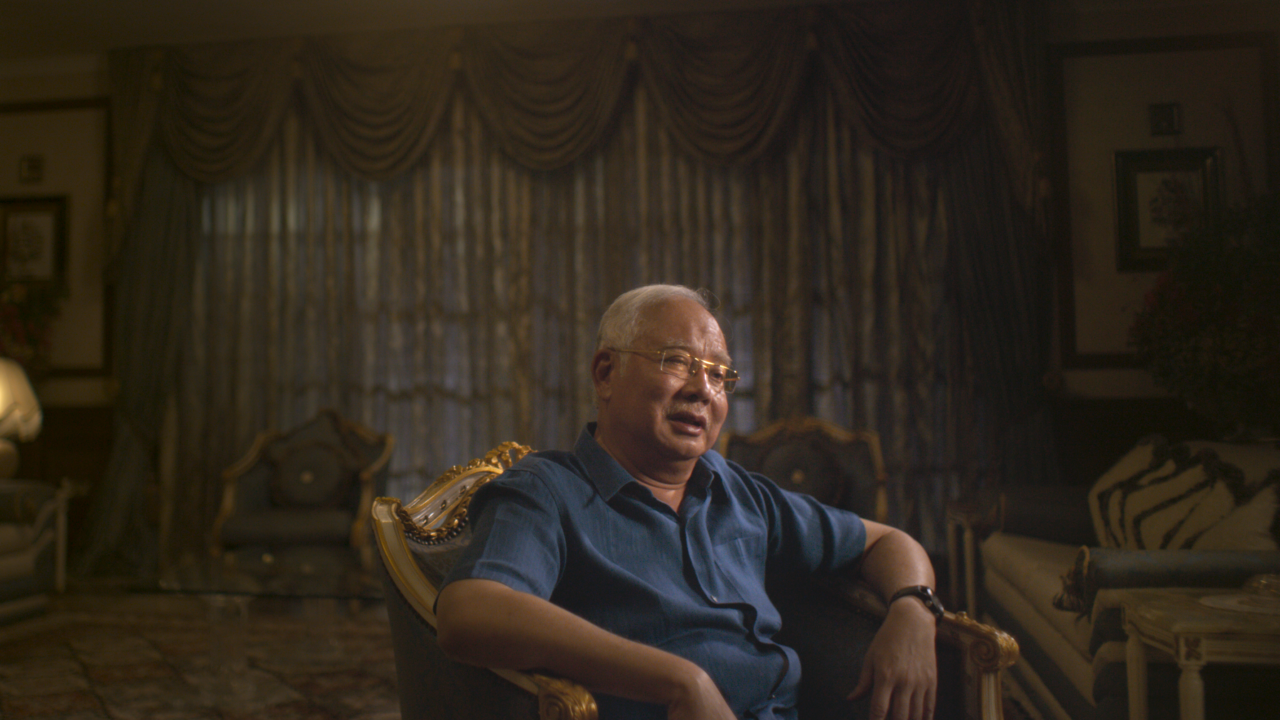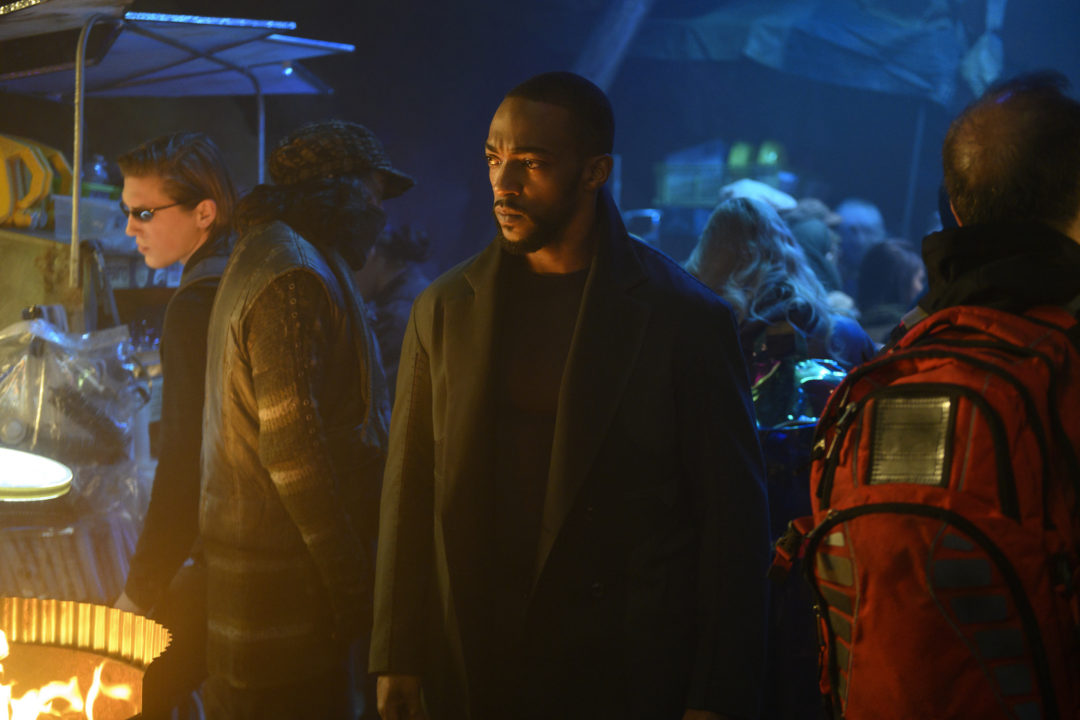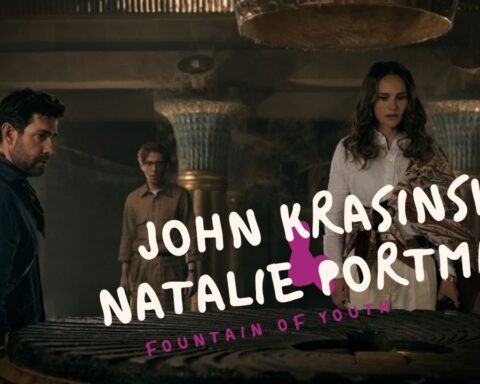What follows is a partial transcript of the interview we did with Zach Heinzerling, the director of “The Man at the Top”, Netflix’s Dirty Money episode on Najib Razak and 1MDB.
This transcript has been edited for length and clarity.
Listen to the full interview by downloading/streaming our podcast here.
Umapagan Ampikaipakan: Alright Zach, I have a ton of questions for you, but before we get into the episode itself, just give me a little bit of an overview about Dirty Money. I’m always curious as to that decision process behind which global scandals make the cut for every season of Dirty Money. I know you just directed this episode, but I was wondering if you had any insight on the whole process and the considerations behind it.
Zach Heinzerling: I would say I am less privy to the conversations that Alex (Gibney) is having with his staff about the episodes. They had been talking about doing the 1MDB episode in Season 1. That would have been in 2018 when that aired – so they probably would have been working on it in 2017 – but just not enough had come out yet, the investigations had just been announced, they obviously didn’t have the elections yet. And they called me probably in March or April of last year and it was the final episode of the season that they had been working out. I think, the fear of it is, that it’s just such a giant subject matter, and to do it in an hour would be tricky.
The Kleptocrats film, I felt, was one piece of the story. A lot of it concerning the journalist’s efforts of breaking the story, of following it and chasing it, and obviously with the participation of The Wall Street Journal reporters, it sort of lacked a Malaysian perspective. To me, it felt like there could be a story which was about what was happening in Malaysia right now. So, I sort of pitched that in response to them saying: “What do you think of 1MDB?” My initial reaction was, well, it seems like a lot has been done on that already, but, if we could go to Malaysia and talk about the election and what’s happening politically, and also actually try to see the victims of this crime – that are a lot of times invisible in financial crimes – then we can get something compelling, emotionally. To get you invested in a story that, for a lot of people, is too complex and too concerned with dollars and cents. Let’s go to Malaysia and see if we can find people on both sides of this story and see why there are people on both sides. What was sort of going on amongst the poorer class of people that were affected most by this but didn’t necessarily know it? That was what we set out to do.
As far as the other episodes, they had already been chosen by the time I came on board. Ours I think was the last to shoot. And I think that’s because we were still kinda waiting to see what was unfolding. And I’ll also say that it (Dirty Money) is very much focused on filmmakers who wanted to make their own film. It wasn’t a series that had a sort of formula, even stylistically or topically. Alex (Gibney) really wanted individual filmmakers to take ownership of the film, and to create something that could be very different from the episodes that preceded it.
UA: You said, get out to Malaysia and talk to people who otherwise haven’t been spoken to, and you did get that in the documentary, but I’m curious as to how crucial getting access to Najib was for you?
ZH: At the beginning, it wasn’t crucial. It wasn’t like we want to make this film to be the definitive voice of Najib. At the beginning, it was really more of an investigation of how far we could get in Malaysia. Actually, Tun Dr Mahathir had responded positively to an interview request, he was then the Prime Minister, and from there we were able to gain access to really anyone in the ruling government at the time. So, at the beginning, it was not imperative to interview Najib.
Though, of course, we had started asking about that. He had done, I think only one other interview – that infamous ABC interview in which he walked out. And off of that, he really was refusing to talk to media at all, especially on camera. So, we thought our chances were pretty slim. In our initial trip, we spoke with his lawyer, whose son we had reached out to. We spoke and we had a chance to interview his father, Najib’s lawyer, and that was our first: “okay, this is the voice of Najib”. That interview was telling, but you couldn’t necessarily get to the emotional side, having a sense of what he is ultimately responsible for or doesn’t feel responsible for.
UA: After that ABC interview – it was such a fiasco, and he felt quite burned – I can understand him not wanting to do anything else. But then, I’m watching this documentary, your documentary, and I’m thinking: “he does realize the show is called Dirty Money right?” What did you tell him, or his people, to convince him to go: “sure, I’ll talk to you guys”?
ZH: It was always a difficult thing to talk about. Because on every appearance release and materials release, “The Untitled Dirty Money Documentary” is there, kinda waving a flag at everyone’s face. Our initial contact was with Yana, Najib’s daughter. Obviously they are aware that these documentaries exist and I think the narrative among the international press has been heavily against Najib. Certainly, with The Kleptocrats and “Billion Dollar Whale”. I mean, he comes out looking completely knowledgeable of what was going on and complicit to the crime and, depending on the trial, sort of cemented in the international public’s mind that he was guilty.
But what was happening in Malaysia was different. Right? What was happening in Malaysia was his popularity was actually increasing. He was going out on these tours and massive amounts of people were actually showing up. And so, I feel like the initial interest was: “hey, look at what’s going on, rest of the world.” The story is not what it seems. And so Najib’s family were interested in someone documenting that. Someone documenting the fact that this picture that the international public sees needs to be coloured in. If you look around, you’ll see that he’s actually quite popular, his base is strong and is growing, he goes out and people support him and defend him, and no one knows about this outside of his supporters and conservative groups in Malaysia. And of course, hearing Netflix, they realize that the audience is going to be wide-reaching so here’s an opportunity for them to show that Najib has popularity. And, if they could just show that, it would be enough, for them, to at least make people think: “well why is he popular?” If what he did was so clearly wrong, and evil, then why does he have support? I think asking that question was sort of enough for – and I won’t speak on behalf of Najib’s family as to why – but I think that was the kernel of it.
And then we had a series of conversations about what we could film, and we landed on being there for a weekend when he was out touring parts of Malaysia and having speeches. And then we had a few hours designated on that weekend to do an interview.
I think they felt: “okay, here’s a side that we feel like would be good for the public to see, and this would create a more balanced narrative to what is inevitably a very complicated story.” Of course, they had seen other things that I had done, and that Alex had done, and felt like Alex’s approach to films is balanced. He’s not looking to completely slander an individual that he suspects is doing something. He upholds the same journalistic integrity as what other people consider to be balanced sources of media. I think they felt somewhat safe.
UA: I think that sense of balance does come through. You speak to everyone. The guys who were fighting this case for the longest time. You speak to Najib. And then you speak to the man on the street as well. And I think this is one of those documentaries where I can’t see the filmmaker’s hand. I’m assuming that was a straight up narrative choice on your part.
ZH: Yeah. I think that’s typically the kind of filmmaking I’m attracted to. You could contrast it to Alex’s episode on Volkswagen where he’s a character. Well, in that case, he had an experience that was relevant to the story. So it felt like putting himself as a character made sense. He’s done other films where he’s not a character. For this film, me being an American, with no real tangible connection to Malaysia, or to the story, it felt better that I should, to some extent, remove myself from the film and not have so much of a presence. (I mean you hear some of my questions in the audio.) Typically I think the director can, if it’s not relevant, distract an audience in a way that can be more confusing than helpful.
UA: So Zach, I’m curious as to why we hear about Rosmah but we don’t actually hear from her. I think out of all of what I saw in the documentary, her voice not being there was a little conspicuous. And I’m curious as to whether that was because of a lack of access or whether it was another narrative choice on your part?
ZH: Lack of access. I mean, they made it clear that they didn’t want us to do a formal interview with her. She also has her own trial that’s awaiting so I think for legal reasons they wanted to concentrate on Najib’s story and not have a potential situation where she’s saying one thing and he’s saying another. That for him to be the definitive voice of this particular film. There could be a scenario in which she’s a part of something else. There was never any disagreement or hostility behind that. It was just the family’s decision to have him speak. She was around but it’s just that she didn’t want to formally speak on the subject at that time. It was definitely a question of access.
We would have loved to have heard her defense of some of the allegations that we made. She’s obviously a massive subject in the film. In retrospect, it might have been better for them to have had her speak. To at least have some voice, to have some other side, but it was their choice not to do that.
UA: I’ve watched your episode about three times now. The things Najib says he’s repeated many times before. But it was interesting watching him say it. We’ve never actually seen him say these things. Correct me if I’m wrong, and if you felt the same way about this, but for the most part he still felt like he was going by a kind of guidebook set out by his lawyers on what he needs to say and what he needs to deny. But I think there was one moment where you manage to capture what I can only call self-reflection. When he goes: “you make a thousand decisions every day and people judge you by the one or two bad decisions you make”. That felt as genuine a moment, I think, that you could have gotten. Am I right? Did you feel the same way?
ZH: Yeah. I do remember that point. And at that point he’s referencing Jho Low. Publicly he has blamed Jho Low for most, if not all, of this. But for him to then say, “well, I made that decision to bring him in, and that was a mistake”, is probably the only admittance of wrongdoing that exists. I am sure he would not consider that an admittance of wrongdoing if asked, but it did feel like a moment in the film where he at least felt responsible for something. And I asked the question in so many different ways. “Obviously 1MDB was a failure and lost lots of money for the country and this was your creation. Don’t you feel responsible, at least, for the financial losses that happened as a result?” And he’d always find a way to sort of blame other people and say that, “yes, it was unfortunate what happened” and “yes, I do feel badly that we didn’t make money faster”, but he still claims that 1MDB, if given time, will recover all of its losses and make money.
He’s still, till today, convinced that it was a good idea and that it can still make money. And that he blames, at the time, you know when Mahathir was sitting as Prime Minister and Anwar seemed to be the next in line, it seemed obvious to him that this was all political and that they were sabotaging the potential gains of 1MDB. And not allowing 1MDB to flourish so that the public would blame Najib and oust him and keep his party away. Clearly no admittance that there were fundamental issues with the creation of 1MDB and certainly the hiring of the leadership.
To say, “look, I can’t always have my eye on every signature”, I think is passing the buck. The reasons for naming the episode “The Man at the Top”, he says, “well, you can’t always just blame the man at the top”, but I think you can. Because if there is someone who should be responsible for the sovereignty and the economic well-being, much less the moral well-being of a country, you should take responsibility. For me that was always the biggest blockage, or issue, I had. It was that he always had a very difficult time admitting that anything went wrong. That doesn’t mean that it’s admitting legal culpability, but I think I was trying to get him to think about it in a sort of bigger picture and I felt like he never really got there with me. That continual denial sometimes can, to me, look more guilty than someone who accepts some blame, and has rationale behind it. That can talk about things they could have done better. If you look back at all of his interviews, you can piece together things that seem like him saying that he has some regrets, but his steadfast response is that this would have gone better if it hadn’t been politically assaulted. And if “we had won the election, we would be fine”, and yadda, yadda, yadda.
UA: The splicing between the man on the street and the talking head interviews, with those involved in the investigation, and journalists. Talk to me about that last bit, when you kind of edit the fisherman singing that song, that dirge, about his plight, with someone like Clare, talking about how what Najib did was unforgivable. When I watched Dirty Money the first time, for me that came across as a kind of disconnect between those people who are fighting for justice and the people who they were fighting for, or on behalf of. And I think that became more and more apparent, given the politics of the day, where Malaysians seem fed up, and where they would defend thievery if it meant they were getting some of it. Was your intent to show that existing disconnect?
ZH: Yeah, I think that it was entirely to show… I mean, and the reason for using Clare… I can see why a white, British journalist’s voice could be construed as not the sort of best decision for a voice to be placed over a Malaysian who is in the worst possible scenario…
UA: But it made for great TV because that contrast was fantastic…
ZH: (Laughs) I think the reason to use it was just because of what Clare… you know the words that she was saying… without even knowing that we were talking to the poor fisherman, Clare, of course mentions that there are these poor people out there who have no idea… I shouldn’t say no idea… but a confused idea about what is happening to them. That this person who they told me they respect for reasons of: “he’s a powerful leader, he has a good track record, the economy was good under him, and he gave me cash handouts, and we believe in his religious politics, etc. etc. etc.” That they wouldn’t necessarily see that now your country is potentially in massive amounts of debt, for the next 30 to 40 years, that its credit rating is shot, and unemployment has gone up. So that could really be what affects you potentially more. And keeps your livelihood the way it is and gives you less of an opportunity take advantage of the welfare system, healthcare, and education, that might be afforded to you if this money hadn’t been spent on boats, and planes, and paintings.
I think it is entirely to show that people who are suffering the most not only don’t necessarily know why they might be suffering but are actually in support of the hand that’s feeding them and biting them at the same time. I think it was important to also meet those fishermen and hear what they had to say and understand their situation and empathize with it. And not just label them as people who are not well-read enough to understand what’s going on. They understand what’s going on in their own way. It’s hard to place blame for not understanding complicated global economics. What I don’t want is a situation where you’re labeling the underclass as not being educated enough to understand bigger problems. But to just show what’s going on and to show that they are supportive of Najib. To show that they are also feeling the impact of the economy being slow. And for the audience to paint their own picture of what they think is happening.
To me, the most interesting part of the film is the fact that Najib who was vilified, and hung in effigy, and ousted from power after 61 years, in this completely democratic, populist effort, is now becoming popular again. And even more so with what’s going on currently with the coup. That is the most interesting part of this. But I think in our episode, just hinting that sort of what’s going on with a ruling class that has shadowy, authoritarian ties, and a more dictatorial leadership style, has become popular again. As a real sort of warning, or an echo of what’s going on in other parts of the world. I think there’s really something to be learned in this story that are not alluded to in other iterations of this story which are plain and simple, lots of money was stolen and was wasted, and look at these evildoers, and we can sit back as Westerners and label them as crooks. But why do people appreciate Najib? Why do they like his leadership style? And not to blame them for it, but to see the rationale behind it, I think is way more interesting and more telling.
UA: It’s because of that singing voice, man.
ZH: (Laughs) I know. I mean he is charismatic. And I will say that he really showed himself in a way that I think was brave of him. But I think he understands that: “people like me for who I am, I’m not ashamed of that.” His public face with his supporters, became a public face with even more people around the world. From what I hear, the Najib family certainly weren’t mad about their portrayal in the film. I haven’t gotten any negative feedback to feel like they were defamed or slandered, so that’s the story.
Dirty Money: The Man at the Top
Netflix, Season 2
Director: Zach Heinzerling
Showrunners: Alex Gibney and Meaghan O’Hara









Follow Us